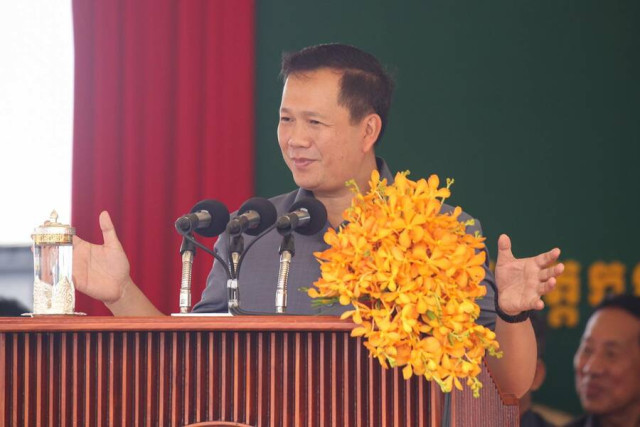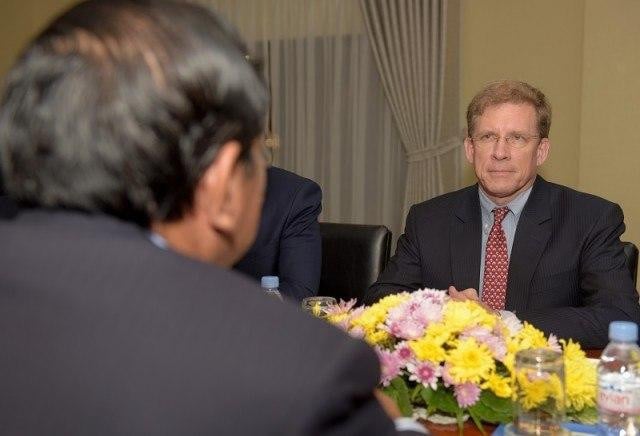PM Defends Advisor Appointments but Reform on the Horizon

- By Teng Yalirozy
- September 1, 2023 4:07 PM
PHNOM PENH – PM Hun Manet has rejected criticism of the large number of advisors and government members, saying there was virtue in keeping officials from previous mandates and their quality at work.
He also announced reforms of the appointment of advisors or assistants.
Appointing new ministers or secretaries of state was necessary for effective policy implementation but keeping officials who had been working for the nation was also important.
“Appointment of officials who have been with us, the ministries and institutions for many years shows that we do not leave behind those who used to work with us,” he said on Sept.1 while meeting factory workers in Kandal province.
“The youngsters have the energy while the old have experience and know the lead. They should work together. That’s why we have lots of officials working together. We stand on quality and virtue.”
Hun Manet has 104 advisors and 70 assistants while some ministries have more than a hundred advisors. For instance, the Information Ministry has 415 advisors with ranks equal to director general or secretary of state.
The King has appointed more than 1,400 undersecretaries and secretaries of State in the 7th mandate. The last term had more than 600.
The appointment saw criticism from social analysts as well as social media users.
The prime minister explained that retired officials who still have the potential to help the government are appointed as advisors so that they can still contribute to national development.
To honor their work, they will be ranked as secretary of state. “It is a virtue in organizing the work and officials,” he said. “Virtue is important and so is the efficiency of the work.”
Virtue comes with reform
The PM will reform the appointment of advisors or assistants with equal rank to minister or secretary of state to avoid negative effects on the leadership of the government.
“Honestly, we have a deputy district governor with equal rank to minister. We have deputy head of bureau with equal rank to the undersecretary of state. So, what should be done at the meetings?” he said.
In a new reform, civil servants, national police officers and military personnel who have previously been appointed as advisors or assistants with ranks equal to minister or secretary of state are to be removed as advisors or assistants.
However, the PM has offered two options. Those who are appointed as advisors or assistants to the prime minister, the deputy prime minister, the senior minister and the minister shall no longer have equal rank to the minister, the secretary of state, the undersecretary of state, or the secretary general, he said.
If those officials want to be advisors or assistants with equal rank, they must give up their position in the state framework and commit to being advisors or assistants.
In this sense, they cannot serve as either, for instance, lieutenant colonel or advisor with equal rank to minister or secretary of state.
In the case that civil servants want either the position within the state framework, such as director general or district governor and the position of advisor or assistant, they shall not be granted equal rank.
Officials who are not in the state framework can take on the role of advisor or assistant with equal rank, Hun Manet said, adding that the Royal Decree on this appointment reform will be issued in the upcoming days.
A person who is a member of the council, manages a private company or has the title of “Oknha” can be an advisor but not with the rank of minister or hold other positions within the state framework.
“If you are a lieutenant general, you cannot be titled ‘Oknha’,” said Hun Manet.
After the issuance of the Royal Decree, the Prime Minister will give six months for officials who have been appointed to make the decision and for the ministries to clean up the work within their circle.
“We don’t revolutionize but reform based on the existing principals for the efficiency of the work,” he said.















